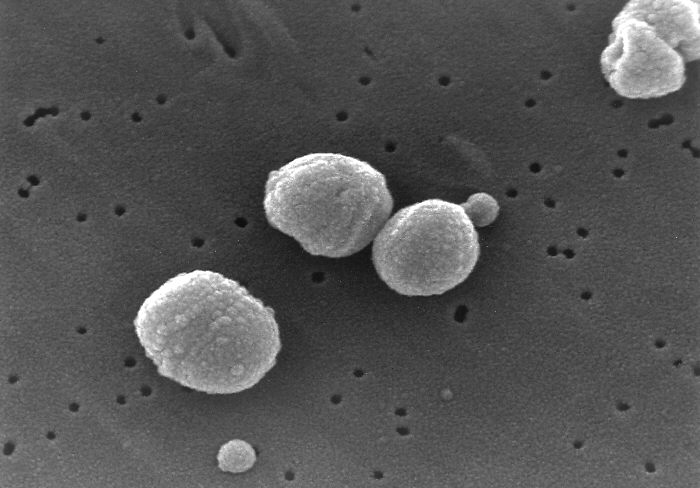Austrian syndrome
Editor-In-Chief: Prab R Tumpati, MD
Obesity, Sleep & Internal medicine
Founder, WikiMD Wellnesspedia &
W8MD medical weight loss NYC and sleep center NYC
| Austrian syndrome | |
|---|---|

| |
| Synonyms | Osler's triad |
| Pronounce | N/A |
| Specialty | Infectious disease, Pulmonology, Cardiology |
| Symptoms | Pneumonia, endocarditis, meningitis |
| Complications | Sepsis, heart failure, neurological deficits |
| Onset | Acute |
| Duration | Variable, depending on treatment |
| Types | N/A |
| Causes | Infection with Streptococcus pneumoniae |
| Risks | Alcoholism, splenectomy, immunocompromised state |
| Diagnosis | Clinical evaluation, blood culture, echocardiogram, lumbar puncture |
| Differential diagnosis | Bacterial endocarditis, viral meningitis, community-acquired pneumonia |
| Prevention | Pneumococcal vaccination, alcohol moderation |
| Treatment | Antibiotics, supportive care, surgery for valve replacement if needed |
| Medication | N/A |
| Prognosis | Variable; depends on promptness of treatment |
| Frequency | Rare |
| Deaths | N/A |
Austrian syndrome is a rare but severe medical condition characterized by the triad of pneumonia, meningitis, and endocarditis, all caused by the bacterium Streptococcus pneumoniae. This syndrome is named after the Austrian-American physician Robert Austrian who first described it in 1957. Despite its rarity, Austrian syndrome poses significant diagnostic and therapeutic challenges, often requiring multidisciplinary management.
Etiology
Austrian syndrome is caused by the bacterium Streptococcus pneumoniae, a gram-positive bacterium that is a common cause of pneumonia and other invasive diseases in humans. The pathogenesis of Austrian syndrome involves the spread of S. pneumoniae from the lungs to the bloodstream, leading to bacteremia. From the bloodstream, the bacteria can then infect the heart valves, causing endocarditis, and cross the blood-brain barrier to cause meningitis.
Clinical Presentation
Patients with Austrian syndrome typically present with symptoms of pneumonia, including cough, fever, and difficulty breathing. As the disease progresses, signs of meningitis (such as headache, neck stiffness, and altered mental status) and endocarditis (including heart murmurs, embolic phenomena, and petechiae) may develop. The simultaneous occurrence of these three conditions is what defines Austrian syndrome and distinguishes it from other presentations of S. pneumoniae infection.
Diagnosis
The diagnosis of Austrian syndrome is based on clinical presentation, blood cultures, and imaging studies. Blood cultures are essential for identifying S. pneumoniae as the causative agent. Echocardiography is used to detect endocarditis, while computed tomography (CT) or magnetic resonance imaging (MRI) of the brain may be necessary to diagnose meningitis. Lumbar puncture with cerebrospinal fluid analysis is also crucial for confirming meningitis.
Treatment
The treatment of Austrian syndrome involves aggressive antibiotic therapy, typically with a combination of antibiotics to cover S. pneumoniae. The choice of antibiotics may be guided by the results of blood culture and sensitivity testing. In cases of endocarditis, surgical intervention to repair or replace the affected heart valve may be necessary. Supportive care, including management of complications such as septic shock and organ failure, is also critical.
Prognosis
The prognosis of Austrian syndrome is poor, with a high mortality rate even with treatment. Early diagnosis and aggressive management are essential to improve outcomes. The presence of underlying conditions, such as immunosuppression or pre-existing heart disease, can further worsen the prognosis.
Prevention
Prevention of Austrian syndrome focuses on vaccination against S. pneumoniae using pneumococcal vaccines. These vaccines are recommended for children, older adults, and individuals with certain medical conditions that increase the risk of invasive pneumococcal disease.
Epidemiology
Austrian syndrome is extremely rare, with only a few hundred cases reported in the medical literature since its initial description. It occurs more frequently in adults, particularly older adults, and is more common in individuals with underlying medical conditions that predispose to pneumococcal infection.
Transform your life with W8MD's budget GLP-1 injections from $125.
W8MD offers a medical weight loss program to lose weight in Philadelphia. Our physician-supervised medical weight loss provides:
- Most insurances accepted or discounted self-pay rates. We will obtain insurance prior authorizations if needed.
- Generic GLP1 weight loss injections from $125 for the starting dose.
- Also offer prescription weight loss medications including Phentermine, Qsymia, Diethylpropion, Contrave etc.
NYC weight loss doctor appointments
Start your NYC weight loss journey today at our NYC medical weight loss and Philadelphia medical weight loss clinics.
- Call 718-946-5500 to lose weight in NYC or for medical weight loss in Philadelphia 215-676-2334.
- Tags:NYC medical weight loss, Philadelphia lose weight Zepbound NYC, Budget GLP1 weight loss injections, Wegovy Philadelphia, Wegovy NYC, Philadelphia medical weight loss, Brookly weight loss and Wegovy NYC
|
WikiMD's Wellness Encyclopedia |
| Let Food Be Thy Medicine Medicine Thy Food - Hippocrates |
Medical Disclaimer: WikiMD is not a substitute for professional medical advice. The information on WikiMD is provided as an information resource only, may be incorrect, outdated or misleading, and is not to be used or relied on for any diagnostic or treatment purposes. Please consult your health care provider before making any healthcare decisions or for guidance about a specific medical condition. WikiMD expressly disclaims responsibility, and shall have no liability, for any damages, loss, injury, or liability whatsoever suffered as a result of your reliance on the information contained in this site. By visiting this site you agree to the foregoing terms and conditions, which may from time to time be changed or supplemented by WikiMD. If you do not agree to the foregoing terms and conditions, you should not enter or use this site. See full disclaimer.
Credits:Most images are courtesy of Wikimedia commons, and templates, categories Wikipedia, licensed under CC BY SA or similar.
Contributors: Prab R. Tumpati, MD

